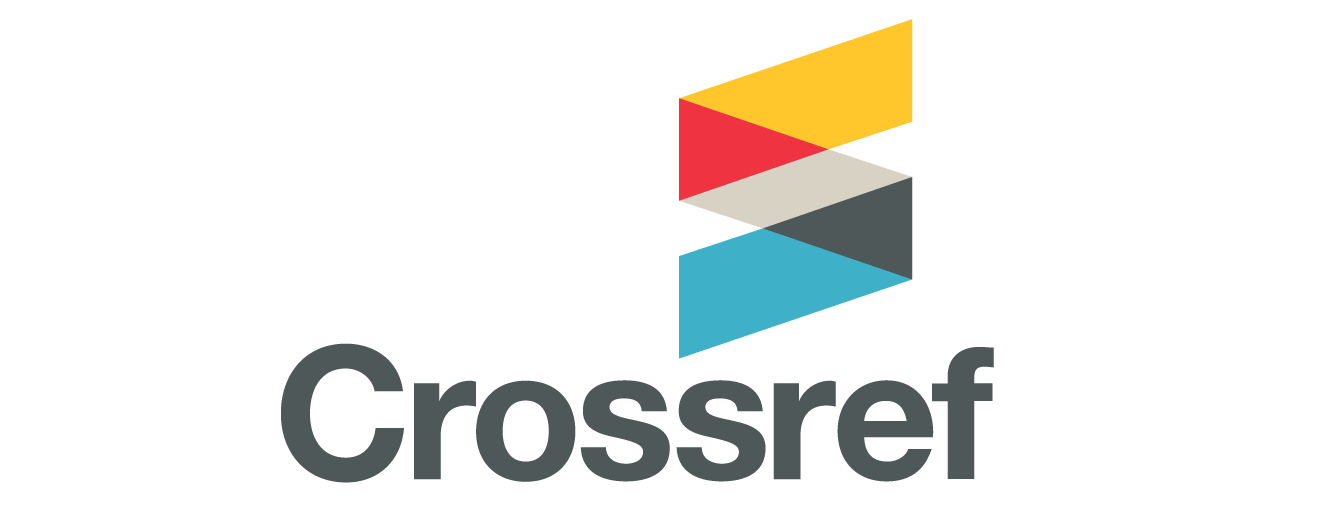Ідентифікація і механізми подолання розривів у різних типах наукових комунікацій
DOI:
https://doi.org/10.15407/sofs2020.04.044Ключові слова:
ноосфера, наукові комунікації, комунікаційні розриви, канали передавання інформації, види і форми комунікації, веб-сервіси, віртуальні комунікації, інформаційні технології.Анотація
Актуальність дослідження обумовлена тим, що вільна циркуляція знань і доступ до них є найважливішою передумовою розвитку науки, що робить комунікацію визначальним елементом і «живою» соціальною тканиною науки. Наукові комунікації (НК) розглядаються не тільки як взаємодія всередині наукового співтовариства, а і як взаємодія науки з бізнесом, державою та суспільством. Кожному типу НК можуть бути притаманні певні протиріччя, так звані комунікаційні розриви, які знижують їх ефективність. Мета статті – систематизувати та структурувати різноманітні типи та форми НК, які існують у соціальних відносинах, здійснити їх структурний аналіз, виявити та оцінити комунікативні розриви, пов’язані з такою типологію, та вказати механізми їх ефективного подолання. Джерелом інформації для дослідження є наукові праці провідних українських і зарубіжних вчених, результати емпіричних досліджень, включаючи звіти Стенфордського університету. Основним методологічним постулатом дослідження став гегелівський принцип сходження від абстрактного до конкретного, а також загальнонаукові методи пізнання (аналізу, синтезу, узагальнення, наукової дедукції та індукції). Робота має міждисциплінарний характер. Отримані результати. У статті розглянуто чотири типи НК (за адресатами): Science-to-science (комунікації у науковому колі), Science-to-government (комунікації науки з державою), Science-to-business (комунікація науки з бізнесом) та Science-to-society (комунікації науки з суспільством). Авторами запропоновано власну класифікацію НК, яка охоплює стандартні (усні та письмові), а також віртуальні (індивідуальні та масові) види НК. Характеристика основних видів НК дозволила оцінити їх ступінь розвитку, встановити комунікаційні розриви і причини їх виникнення. На підставі цього авторами запропоновано механізми подолання цих комунікаційних розривів за видами НК (з визначенням розриву і способу його подолання). В процесі дослідження і обґрунтування авторських рекомендацій особливу увагу приділено можливостям для розвитку НК, створюваним інформаційними технологіями. Зроблено висновки щодо необхідності формування єдиного комунікаційного простору для НК з використанням нових форм взаємодії, які породжуються віртуальними комунікаціями. Для наочності запропоновано модель спеціалізованого веб-сервісу, покликаного полегшити процес НК, показано її елементи (зокрема бази даних і базу знань) та організацію інформації для різних користувачів. На думку авторів, такі сервіси стануть сходинкою до ноосфери.
Посилання
Illingworth, S. (2017). Delivering effective science communication: advice from a professional science communicator. Seminars in cell & developmental biology, 70, 10–16. https://doi.org/10.1016/j.semcdb.2017.04.002
Jucan, M., Jucan, C. (2014). The power of science communication. Procedia – Social and Behavioral Sciences, 149, 461–466. https://doi.org/10.1016/j.sbspro.2014.08.288
Könneker, C., Lugger, B. (2013). Public Science 2.0 – Back to the Future. Science, 342, 49–50. https://doi.org/10.1126/science.1245848
Taking a risk making a difference (2007). 2006–2007 annual report of the Stanford University. Retrieved from https://otl.stanford.edu/sites/g/files/sbiybj10286/f/otlar07.pdf. (last accessed: 10.02. 2020).
Braha, J. (2017). Science communication at scientific societies. Seminars in cell & developmental biology, 70, 85–89. https://doi.org/10.1016/j.semcdb.2017.05.010
Bathelt, H., Henn, S. (2014). The Geographies of Knowledge Transfers over Distance: Toward a Typology. Environment and Planning A: Economy and Space, 46(6), 1403–1424. https://doi.org/10.1068/a46115
Tishchenko, О.S. (2015). Modern forms of scientific communications in higher education. Socioprostir, 4(15), 67–70 [in Russian].
Romm, C., Pliskin, N., Clarke, R. (1997). Virtual communities and society: toward an integrative three phase model. International Journal of information management, 17(4), 261–270. https://doi.org/10.1016/S0268-4012(97)00004-2
Pauleen, D., Yoong, P. (2001). Facilitating virtual team relationship via Internet and conventional communication channels. Internet Research: Electronic Networking, Applications and Policies, 11(3), 199–202. https://doi.org/10.1108/10662240110396450
Barker, M., Olabarriaga, S. D., Wilkins-Diehr, N., Gesing, S., Katz, D. S., Shahand, S., … Costa, A. (2019). The Global Impact of Science Gateways, Virtual Research Environments and Virtual Laboratories. Future Generation Computer Systems, 95, 240–248. https://doi.org/10.1016/j.future.2018.12.026
Liu, D., Valdiviezo-Díaz, P., Riofrio, G., Sun, Y.-M., Barba, R. (2015). Integration of Virtual Labs into Science E-leaming. Procedia Computer Science, 75, 95–102. https://doi.org/10.1016/j.procs.2015.12.224
Gui, Q., Liu, C., Du, D. (2009) Globalization of science and international scientific collaboration: A network perspective. Geoforum, 105, 1–12. https://doi.org/10.1016/j.geoforum.2019.06.017
Dynamics of development of sectoral scientific communications in Russia. (2015). Report of the Russianzventures company [in Russian]. Retrieved from https://www.rvc.ru/upload/iblock/0b3/201605_dynamics_of_scientificcommunication.pdf (last accessed: 10.02.2020).
Commercialization of technologies at an early stage. Study of global practices: universities, corporations, government. (2015). Report of the Russian venture company [in Russian]. Retrieved from https://www.rvc.ru/upload/iblock/9eb/ESR_RVC_2015_RU.pdf (last accessed: 10.02.2020).
Marra, A., Mazzocchitti, M., Sarra, A. (2018). Knowledge sharing and scientific cooperation in the design of research-based policies: The case of the circular economy. Journal of Cleaner Production, 194, 800–812. https://doi.org/10.1016/j.jclepro.2018.05.164
Shtoff, V.A. (1978). Problems in the methodology of scientific cognition. Moscow: Higher School, 269 [in Russian].
Marlow, S. L., Lacerenza, C. N., Salas, E. (2017). Communication in virtual teams: a conceptual framework and research agenda. Human Resource Management Review, 27(4), 575–589. https://doi.org/10.1016/j.hrmr.2016.12.005
Webster, J., Wong, W. (2008). Comparing traditional and virtual group forms: identity, communication and trust in naturally occurring project teams. The International Journal of Human Resource Management, 19(1), 41–62. https://doi.org/10.1080/09585190701763883
Antonovsky, А.Yu. (2015). Understanding and mutual understanding in scientific communication. Voprosy Filosofii, 2, 45–58 [in Russian].
Shevchenko, G.Ya., Bilozubenko, V.S. (2019). Structural model of scientific communications. Science and Science of Science, 4 (106), 37–51 [in Russian]. https://doi.org/10.15407/sofs2019.04.037
Mirskaya, Ye.Z. (2010). Communication in science. Sociology of science and technology, 1, 126–139 [in Russian].
Price, D.J. (1976). Trends in the development of scientific communication – past, present and future. Communication in modern science, 93–109 [in Russian].
Zinoviev, А.А., Stepin, V.S., Goldberg, F.I. (2020). The method of ascending from the abstract to the concrete [in Russian]. Retrieved from https://gtmarket.ru/concepts/6994 (last accessed: 10.02.2020).
Pobol, А.I. (2012). The partnership of business, government and science for innovative development of the regions. Interaction between business, government and science: three-sided view of the economic development, 1, 67–78 [in Russian].
Rudi, A.Sh. (2012). Scientific communication and the place of the concept of sustainability in it.Scientific Bulletin of Omsk, 2(106), 115–118 [in Russian].
Riabokon, М.V. (2019). The concept of Engineering schools in the national innovative system. Scientific Bulletin of International Humanitarian University. Series: Economy and Management, 40, 44–53 [in Russian]. https://doi.org/10.32841/2413-2675/2019-40-6
Ivanov, I.I. (2006) The innovative policy during the transition to knowledge economy. Economic science in modern Russia, 1(32), 46–58 [in Russian].
##submission.downloads##
Опубліковано
Як цитувати
Номер
Розділ
Ліцензія
Авторське право (c) 2020 Наука та наукознавство

Ця робота ліцензується відповідно до Creative Commons Attribution-NonCommercial-NoDerivatives 4.0 International License.





